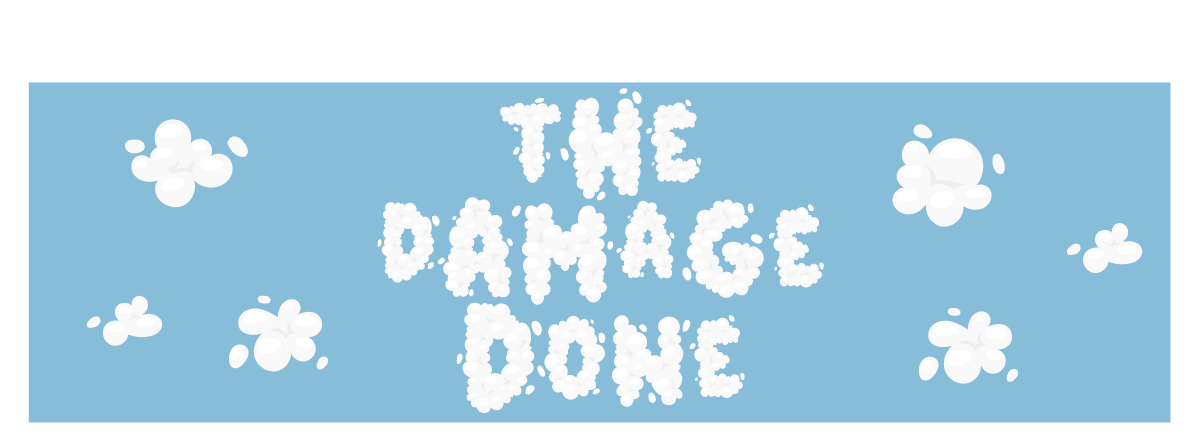TLF Gems Newsletter November 2023
Your monthly CX and insight newsletter from TLF Research
The art of leadership is understanding what you can’t compromise on.
Set Godin
What makes a good leader? People will talk about the importance of courage, of storytelling, of empathy, of integrity, and so on. All of those are important, but I think Seth might have identified something more fundamental.
In the same way that strategy is sacrifice, I think leadership is knowing what you won't accept. It doesn't mean a leader should never compromise, but that they should be clear where they won't compromise, ever. That, when it comes down to it, is what defines your values, and everything else flows from it.
Thanks for reading,
Stephen
Here are 6 things we think are worth your time this month

Don't End With A Thank You
The best tips are often the things which are obvious as soon as you hear them, like this piece of advice from Jon Schwabish to finish with your main takeaway rather than a 'Thank You' or 'Any questions' slide. "This is your takeaway message. This is the thing your audience has to stare at for those 10 or so minutes while you answer questions and engage in discussion. You can add your social media handle, email address, or even a QR code to the slide, but this last slide delivers content and reinforces the entire point of your presentation."

Prompting Isn't That Important
A lot of quite silly things have been said about how crucial being a good 'prompt engineer' will be as generative AI takes over the world. This thoughtful piece argues that, although there is an art to writing good prompts, it's far more important that you understand your subject. "You need to become more expert in what you’re already doing—whether that’s programming, art, or humanities. You need to be engaged with the subject matter, not the AI."

Don't Be Different, Be Contrarian
Alex Smith argues that bad strategy is being better, good strategy is being different, but masterful strategy is being contrarian. Being contrarian means doing things that are opposite to what your competitors do, so that they can't copy you. What do you and your competitors disagree on, when it comes to customer experience? "It's a strategy that takes something other brands value, and rejects, neglects, or undermines it in favour of something else."

Spotting Watermelons
The concept of 'watermelons' is a new one on me, but I seem to be seeing it everywhere. This post from Bain suggest some early warning signs for change programmes that may be going off course, even if their indicators are green. "Data on business transformations shows half of underperforming initiatives appear green (on track) while actually red."

The Damage Done By Bad Surveys
This wonderfully grumpy article from Mark Ritson about the flaws of so much research is a great read, and I totally agree. "One of the most important lessons of market research is to use qualitative data to identify the variables and, only then, use quantitative surveys to measure the outcomes. Qual on its own is weak and fluffy. Quant on its own is precisely wrong. So qual must drive quant. Otherwise, you measure the importance of A, B and C when X, Y and Z were also relevant and far more important to a consumer who does not share your agenda or worldview."

Top Reads: Watching the English
This book is funny in places, quite academic in places, and it won't be for everyone. What it does really well, though, is give an example of how anthropologists try to make reliable generalisations about people based on 'participant observation'. Definitely one for the reading list of any aspiring qualitative researcher! "I expect to find much variation and diversity within English culture, but hope to discover some common core, a set of underlying basic patterns that might help us to discover Englishness."
If you'd ever like to have a look at our list of past Top Reads, they're all catalogued on the CX Insights Hub here - enough reading to keep anyone going for a while!
You may also be interested in
Newsletter sign up
Subscribe to our newsletter & receive regular updates from the CX Insights Hub. You'll also receive TLF Gems - a monthly collection of interesting articles & opinion pieces from the world CX & customer research.
Customer research
We are TLF, a customer experience research company that has been designing tailored customer experience and market research programmes for over 20 years.
Customer Insight Magazine
Created and published in house, Customer Insight magazine is a home for longer features, case studies, and latest thinking on customer experience and insight. All designed to inform, stimulate, and sometimes to provoke. We hope you enjoy reading it as much as we do creating it!
Downloads
The Index of Consumer Sentiment Quarter 3 2023
Download the latest report now. In Q3 2023, consumer sentiment has fallen after two quarters of relatively rapid growth. It remains higher than for most of 2022, but still suggests a downward overall trend in the optimism of UK consumers.
/f/131443/1617x1027/a52d255102/tsm-benchmarking-reports-feature.png)
/f/131443/1335x887/4b635cd785/essentials-analysis-webinar-feature.png)
/f/131443/2512x1656/98a7710e67/cx-feature.jpg)
/f/131443/640x422/c90e3b081d/research-to-inform-strategy.jpg)
/f/131443/1962x1135/e8f74f1bf6/customer-research-review.png)
/f/131443/957x957/19d5c6addf/newsletter-sign-up-thumbnail.png)
/f/131443/1385x1385/bb386686d3/customer-research-thumbnail.png)
/f/131443/2240x2240/4bdd2b90b9/all-ci-magazines-square.jpg)
/f/131443/1084x1089/1ea3b04ba4/index-consumer-sentiment-q3-2023-thumbnail.png)